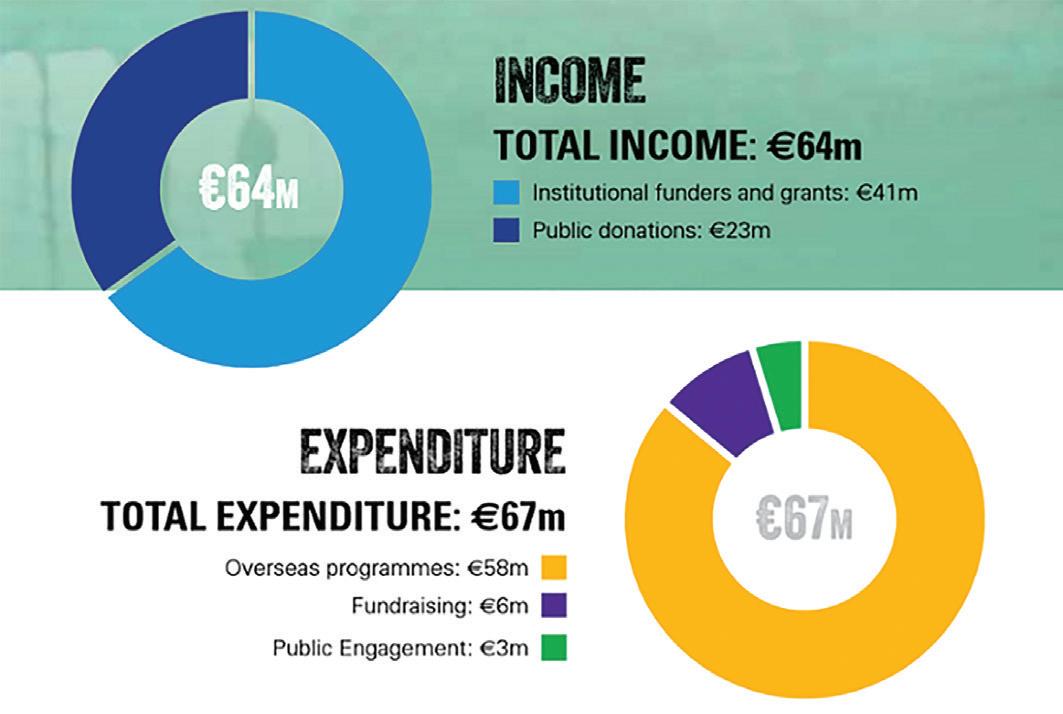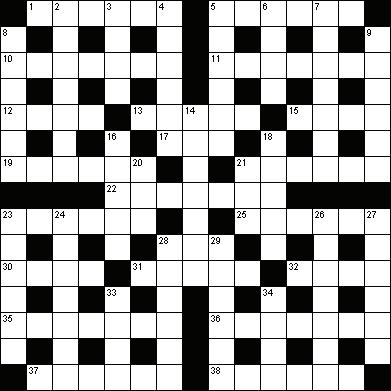
21 minute read
TRÓCAIRE
2.5 MILLION THANK YOUS
LAUNCHING ITS ANNUAL REPORT RECENTLY, TRÓCAIRE WARNED OF THE LONG-TERM IMPACT OF COVID-19 IN THE DEVELOPING WORLD.
Advertisement
Hala Sanak (14), who plays for Gaza’s first-ever schoolgirls’ football club, received a Gaelic football skills session on the Gaza beach with All-Ireland winner and Trócaire ambassador Oisín McConville. Photo: Garry Walsh/Trócaire
Trócaire assisted 2.5 million people in 27 of the poorest countries across the world last year thanks to the generous support of the Irish public. The charity thanked people across the island of Ireland after the figures were released in the agency’s annual report which showed the scale of the aid agency’s work in 2019/20, prior to the global outbreak of COVID-19. Trócaire warned of the long-term impact of COVID-19 in the developing world, where the poorest people have been plunged into further poverty due to the social and economic implications of the pandemic.
The financial year 2019/20 saw the public donate €23m (£20.9m) to Trócaire – donations that change the lives of some of the poorest people in the world. Trócaire’s 2019 Lenten Appeal saw a 10 per cent increase in donations, resulting in €8.3m (£7.5m) being contributed to the charity. The charity supported people in 27 countries across Africa, Asia, Latin America and the Middle East. In terms of number of people supported, Trócaire’s largest programmes last year were in Ethiopia, Sudan and DR Congo.
The report also details how last year saw it respond to natural disasters and climatic shocks. Working through its partners, Trócaire provided shelter, food and other vital equipment to 39,000 people across Mozambique, Malawi and Zimbabwe after the devastating impact of Cyclone Idai. Of the 2.5 million people the organisation supported last year, 1.8 million people received humanitarian support, while an additional 700,000 people were supported through Trócaire’s longterm development work. This work includes agricultural support, women’s empowerment projects and support for human rights defenders. Advocacy campaigns included Trócaire’s call on the Irish and UK Governments to support a UN Binding Treaty on Business and Human Rights, while the agency’s continued support for the Occupied Territories Bill has kept the issue to the fore of Irish political debate. Additionally, Trócaire-funded legal support resulted in the release last year of indigenous human rights defender Abelino Chub Caal, who spent two years wrongfully imprisoned in Guatemala. Commenting on the latest annual report, Trócaire CEO Caoimhe de Barra, said: “This report details the positive impact our work has had in support of 2.5 million people and that figure is a testament to the commitment of the Irish public to the work of Trócaire. As always, we are tremendously grateful for this support from the people of Ireland, north and south, as well as our ongoing partnerships with Irish Aid and DfID, which allows us to work with local partners in an effort to tackle poverty and injustice in some of the world’s poorest regions. Our programmes around the world brought support and relief to communities in 27 countries, including humanitarian support for nearly 1.8 million people.” The COVID crisis has profoundly changed Trócaire’s work. Over recent months, its programmes have rapidly shifted to helping
to stop the spread of the virus in countries that lack the most basic medical infrastructure to deal with an outbreak. “COVID-19 is an immediate threat to us all, but the threat is heightened in places like refugee camps where people are unable to socially distance or regularly wash their hands. The social and economic implications of this pandemic have plunged already desperately poor people into further poverty. While our immediate response will continue for many months ahead, we are also expecting an increase in hunger in the months ahead. We are also concerned about the human rights impact of COVID-19. This crisis may provide authoritarian governments with an opportunity to clamp down on human rights, target human rights defenders and push ahead with projects that violate the rights of communities. Women and girls are also at increased risk of violence due to lockdown measures. Addressing both the drivers and impact of that violence is a priority for Trócaire.
“The lasting impacts of the COVID-19 pandemic will only become clear in the months ahead, but it is hoped that Trócaire’s loyal supporters will continue to play a vital role in the lives of the poorest and most vulnerable.”

If you would like to donate to Trócaire, please go to
www.trócaire.org

to find out the various ways you can help their projects
PINK PRAYER BOOK


Breast cancer: coping… healing… surviving… thriving… Inspired and written by breast cancer patients and survivors, their mothers, daughters, sisters and friends. The Pink Prayer Book provides prayers, scripture and quotations offering support for women moving through diagnosis and treatment towards recovery and hope of lasting remission.
REALITY CHECK
PETER McVERRY SJ
666 – THE MARK OF THE DEVIL?
SOME PEOPLE HAVE AN UNHEALTHY FASCINATION WITH THE APOCALYPSE, THE BOOK OF REVELATION. THE FALSE PROPHETS IT DENOUNCES ARE THOSE WHO EXCESSIVELY SPIRITUALISE THE CHRISTIAN MESSAGE. BY FAILING TO OPPOSE OPPRESSION AND INJUSTICE, THEY ARE COLLABORATING WITH THE FORCES OF EVIL AND SO BEING FALSE TO THE GOSPEL.
The Apocalypse is the least read book in the Bible but it has an important message for Christians in every age, namely, ‘how should Christians respond when the powerful oppress the poor?’
It is a book with a bad reputation. It inspires fear in some who believe, wrongly, that it is talking about the end of the world and the terrible threats that are about to happen. Popular imagination has identified the number 666 as the sign of the Devil. In Dublin, the telephone numbers of all Garda stations begin with 666, either out of convenience or possibly chosen by an administrator with a sense of humour! Some extreme rightwing religious groups believe it refers to the pope.
The number 666 does indeed refer to “the Beast,” but it is not Satan, nor the pope. 'The Beast' was the Roman emperor at the time, Domitian, who was persecuting the Christian communities, with a fierce intensity, because they acknowledged Jesus, and not the emperor, as their Lord. They were thus seen as traitors, a threat to the Roman Empire, and were being hunted down, imprisoned and executed. Domitian was understood, in the popular legend of the time, as the reincarnation of the emperor Nero. In Hebrew, Nero’s name was written 'NRON CSR' (Neron Caesar). These letters, when converted into Hebrew
Statue of emperor Domitian, Ephesus Museum, Selchuk, Turkey

numerals and added together, yields the number 666. (N=50; R=200; O=6; N=50; C=100; S=60; R=200).
As this suggests, the Book of the Apocalypse was written in code. It was a fierce attack on the Roman Empire, which was the oppressive political power of the time, and if the Romans read and understood the book, their persecution of the Christian communities would only intensify. So it is full of symbols that only Christians, who were familiar with the Old Testament, could understand. For example, 'The Beast' had seven heads, a reference to Rome which was known as the city of the seven hills.
It does indeed predict the end, not of the world, but of the Roman Empire. It was written to encourage Christians to remain faithful to the Gospel, amidst the terrible trials and tribulations which they were experiencing (described symbolically by terrible plagues) in the knowledge that God is with them and will, in time, destroy 'the Beast', and vindicate them. The plan of history is known only to God, but Christians are assured that God will not allow an unjust empire to triumph over the oppressed. Christians are called to oppose this evil empire, even if this resistance leads to further persecution and a martyr’s death.
The Book of the Apocalypse includes many hymns. These hymns are the communities’ 'resistance songs' which affirm that God is the only Lord of history and the Christ is his only 'lieutenant' in heaven and on earth. Their purpose is to sustain the Christian people’s spirit in their struggle for justice and their hope in the final victory of good over evil.
False prophets, denounced in the Apocalypse, are those who excessively spiritualise the Christian message. By failing to denounce and actively oppose oppression and injustice, they are collaborating with the forces of evil and thereby betraying the Gospel. 'The Beast', the symbol of institutionalised violence, which oppresses the poor and the weak, exists in every age. 'The Beast' today are those who worship the idols of power, wealth and profit at any price. They are those who ensure that they get richer and richer while many remain locked in desperate poverty. They are those who use their power for their own self-interest and not for the benefit of their fellow human beings. They are those who permit environmental destruction for their own personal gain. The Apocalypse, which shows Jesus on the side of the poor and the defenceless, calls on Christians to fight oppression despite the suffering, and even death, which it may bring. We think of the thousands of community leaders who were killed or 'disappeared' for their support for the victims of institutionalised violence and poverty in many countries. The Apocalypse challenges us to look around at the poor, the homeless and marginalised in our own country and ask, “What can I do?”
For more information or to support the Peter McVerry Trust: www.pmvtrust.ie info@pmvtrust.ie +353 (0)1 823 0776
NOVEMBER 01 HOLINESS KEEPS THE CHURCH FOREVER YOUNG We break the flow of the ordinary Sundays of the
SOLEMNITY OF year today to celebrate
ALL SAINTS a special solemnity, the Feast of All Saints. A feast day for honouring all the saints can be traced back as early as Pope Gregory III (731-741) who dedicated a chapel in St Peter’s Basilica to all the saints and ordered the anniversary of its dedication to be kept annually on November 1. Pope Francis has been particularly good at reminding us of the great variety of what we might call ‘everyday holiness’. Today is the feast day for honouring our grandparents, relatives and neighbours who have become memorable for us by their sheer goodness.
They never set out to impress, they were just good people.The readings of today’s Mass bring to the fore some of the characteristics of the Church’s holiness down through the centuries. The first reading is a reminder that the oldest veneration of the saints was the cult of the martyrs who laid down their lives for the
I HAVE NO OIL!
The liturgical year is next few Sundays will focus will be taken from Jesus’ last sermon on the Mount of
Olives overlooking Jerusalem (Matthew 2425).
The Gospel begins with a realistic parable.
Jewish weddings were held in the evening.
Family and friends accompanied the groom as he brought his bride from her family home to her new home with his family where the wedding dinner was held. Torches or lamps were needed to provide light. According to our parable, ten girls were given this responsibility. Five of them forgot to bring oil for the lamps so the procession threatened to be a disaster. The bride and groom are late Lord and who became the first members of the great cloud of witnesses that still supports us in our faith. “With so many witnesses in a great cloud all around us, we too, then, should throw off everything that weighs us down and the sin that clings so closely, and with perseverance keep running in the race which lies ahead of us” (Heb 12:1). There are still martyrs today who render service to the Lord. How often do we pray for the modern martyrs in places like China or Nigeria or Pakistan where very ordinary men and women pay the price for their loyalty to the Gospel? Today’s Gospel of the Beatitudes is also reminder how, day after day, year after year, we strive to be trained in that devotion to the Lord and our brothers and sisters in the faith that puts into living practice the models that Jesus offers us of poverty of spirit, purity of heart, meekness and mercy, to name but a few. Holiness has no age limit. Throughout the Church’s history, we hear of elderly men and women who were strong in the faith, of young people, often no more than teenagers, who continued to be

Today’s Readings
Rev 7:2-4, 9-14; Ps 23; 1 Jn 3:1-3; Mt 5:1-12
NOVEMBER 08
32ND SUNDAY IN ORDINARY TIME
ending shortly, so our Gospel readings for the on the end of the age. They
fascinated by the story of Christ. arriving. Matthew does not tell us why, merely mentioning that the girls had fallen asleep. When word arrives that the groom is on his way, there is a frantic flurry of activity. Disaster again: there is only enough oil for five lamps: stretching it for ten will mean that all ten will splutter out, so the wedding procession will be a complete flop! The girls go off to find an oil shop: an unlikely prospect so late at night.
Despite this chaotic beginning, the wedding feast gets underway. When the five girls return from their shopping trip, the groom refuses to open the door to them, saying he does not know them. Taking the parable at its face value, this seems unlikely, not to say unfair. Their thoughtlessness might have ruined the wedding, but they it is likely they are just girls with little experience of wedding planning.
Matthew’s use of wedding banquet imagery elsewhere in the Gospel should warn us that we are in the world of allegory. Wedding banquets signal above all the union of the Messianic Son of God with his people. The point of the allegory is that we do not know when the Messiah will return, any more than the girls knew when the bridegroom would arrive. The ten girls represent the Christian community after the Resurrection waiting for the Messiah’s return. Matthew divides them into ‘wise and foolish’ to make one of his favourite theological points. The time between the Resurrection and the return of the Son of Man is not ‘empty time’. It gives the followers of Jesus the opportunity to prove they are his genuine disciples by devoting themselves to good works. That time is now: there is no point in waiting until the bridegroom is at the door.
Today’s Readings
Wis 6:12-16; Ps 62; 1 Th 4:13-18 (or 4:1314); Mt 25:1-13
NOVEMBER 15
33RD SUNDAY IN ORDINARY TIME
WHAT HAVE YOU DONE WITH YOUR TALENTS?
The opening words of the parable warn us that it is another allegory of the Kingdom and the delay of the return of the Son of Man. It takes the example of a rich man departing on a long journey who divides his property among three individuals. Although they are called servants (an even more exact translation would be ‘slaves’), it is probably best to see them as people of some standing. The sums of money involved are large: one talent would be the equivalent of €20,000 in today’s money, so the servants are given sums ranging from €100,000 to €20,000. The first two servants invest the money and get a good return. The third simply buries the one talent he has received, sure that he will be able to hand it back to a master he knows SOLEMNITY OF While not specifically as the climax of the series of parables of the end times. It is in many respects a sort of a key to them and to other aspects of Jesus’ teaching in this Gospel.
It begins with a majestic scene describing the return of the Son of Man in glory. Within a few days, Jesus will end his earthly life in the pain and humiliation of the Passion. After the Resurrection, he will depart unobtrusively, bidding farewell to his own in the relative obscurity of a hillside in Galilee. His return, however, will be glorious, escorted by angels to take his seat for judgment. Before him, all the nations are gathered. Like a shepherd at evening, he separates sheep from goats. The two speeches addressed to those on either side are substantially the same: what to be to be “a hard man, reaping where he has not sown and gathering where he has not scattered”.
The parable emphasises the long interval between the master’s departure and his return. As we saw last week, this suggests that the point of the parable will be how the members of the Church respond to the absence of their Lord. The reckoning of accounts follows a simple pattern: each servant brings what he was given and what he has made by investing the money. The first two servants are praised and promised even greater share in their master’s good fortune. The meeting with the third servant is the longest. He begins by telling his master how he tried to be careful with what he was given. With something of a flourish of self-congratulation, he now produces it, expecting to be praised for his prudence. It comes as a shock to him that instead of praise, he receives abuse. He is called “wicked is different is the reaction of those to whom they are addressed.
The first group are the ‘sheep’: the Bible takes a positive view of sheep. The message addressed to them is positive: they are blessed by the Father; a place has been prepared for them in the Kingdom since the foundation of the world. They have passed six vital tests: they have fed the king when he was hungry, given drink to him when he was thirsty, welcomed him when he was a stranger, clothed him when he was naked or visited him when he was sick or in prison. Christian tradition adds another act, the burial of the dead, to make these the ‘seven corporal works of mercy’. This comes as a surprise to them. They have no memory of ever having served the king in any of these ways. He reminds them that as long as they did it to the least, the most vulnerable of his brothers and sisters, they did it to him.
The next group to be addressed are those on the left. The same test is applied to them, but they have failed it. Again, this is news and lazy”. His one talent is given to the man with five and he is ordered to be “cast out into the darkness where there will be weeping and grinding of teeth”.
Like other parables in Matthew, this is a story of a tragic miscalculation. The servant with the one talent is an adult male equivalent of the five girls. It is hard not to feel some pity for an individual who is so paralysed by fear that he fails to make the most of the opportunities that are offered him. The parable closes with those chilling signals of final loss that are so common in Matthew – being cast into darkness and the grinding of teeth.
Today’s Readings
Prov 31:10-13, 19-20, 30-31; Ps 127;
NOVEMBER 22 SHEEP AND GOATS The story in today’s Gospel closes Jesus’ final great teaching discourse.
CHRIST THE KING called a parable, it comes
1 Th 5:1-6; Mt 25:14-30 to them: they have never seen the king in any kind of need, but in failing their weak brothers and sisters, they failed the king. The scene ends with the two groups going their separate ways — the goats to eternal punishment and the just ones to eternal life.
The parables of the end times have spoken continuously about the need to be ready for the mysterious coming of the Son of Man. It is now clear what readiness means. Jesus’ first sermon on a hillside in Galilee began by proclaiming beatitudes that would distinguish his disciples. His last sermon, on a hill overlooking Jerusalem, ends by enumerating six works of mercy that are a perfect match for the beatitudes. Matthew is a practical teacher, transforming the ideal into the practical. To quote St John of the Cross, “in the evening of life, we shall be judged on love”.
Today’s Readings
Ez 34:11-12, 15-17; Ps 22; 1 Cor 15:20-26, 28; Mt 25:31-46
BE ON YOUR GUARD!
NOVEMBER Today, we begin a new liturgical year, and a new 29 Gospel. The one who brings us the ‘Good News’ this year is St Mark. For many of us, the first thing that comes to mind when we think of Advent is
FIRST SUNDAY the coming of the Christ child at Christmas. The
OF ADVENT liturgy of these four Sundays, however, takes a wider perspective. It focuses on the three-fold coming of the Lord – his historical coming as a child born of Mary, his future coming as glorious Son of Man at the end of time, and his sacramental coming through his Word and Sacrament in the liturgy of Christmas.
The future coming is particularly prominent in the first weeks of
Advent. As the nights grow longer and darker, the instinct of the human body is to take more rest. The liturgy of Advent, however, emphasises Jesus’ call to watchfulness in today’s Gospel. Spoken originally to the disciples on the Mount of Olives in Jerusalem at the beginning of the last week of his life, it was originally intended to alert them to the dangers which lay ahead in the Passion. Later, in the finished written Gospel, it may have been intended to alert the followers of St Mark of an approaching crisis of faith when Jerusalem fell to the Roman armies. The metaphor of the man going on a journey and giving instructions to his disciples before his departure anticipates the return of Christ. Risen and ascended into heaven, he will return.
He left no timetable for that return however, and so an attitude of watchfulness should be built into the life of his followers. They should be ready for him whatever time of the day or night he will return.

Today’s Readings
SOLUTIONS CROSSWORD No. 7 ACROSS: Across: 1. Baobab, 5. Joseph, 10. Caldera, 11. Coronet, 12. Iago, 13. Jonah, 15. Biro, 17. Nil, 19. Muslin, 21. Useful, 22. Quivers, 23. Shogun, 25. Nausea, 28. Gnu, 30. Ruse, 31. Goats, 32. Ergo, 35. Flat cap, 36. Pompeii, 37. Hymnal, 38. Annals. DOWN: 2. lleges, 3. Bier, 4. Beacon, 5. Jackal, 6. Spry, 7. Pontiff, 8. Schism, 9. Stroll, 14. Nirvana, 16. Pique, 18. Essay, 20. Nun, 21. Urn, 23. Strife, 24. Ossuary, 26. Surreal, 27. Adonis, 28. Gospel, 29. Utopia, 33. Scan, 34. Amen. Winner of Crossword No. 7 Una Donnolly, Newbridge, Co Kildare.
ACROSS
1. Counting snakes. (6) 5. Epic Latin poem by Virgil. (6) 10. The least amount required. (7) 11. A match for the devil! (7) 12. The first murder victim in history. (4) 13. Country referred to as the "Roof of the World." (5) 15. The cutting side of a blade. (4) 17. Strike lightly especially with a slight sound. (3) 19. A tall upright stone of a kind erected in prehistoric times. (6) 21. The fidelity of a feudal vassal to his lord. (6) 22. Landlocked country of central Europe. (7) 23. Existing but not yet developed or manifest. (6) 25. Country known as the cradle of Western Civilisation. (6) 28. The snake traditionally believed to have killed Cleopatra. (3) 30. Caribbean Communist country visited by Pope Francis in 2015. (4) 31. Irish patriot who led an abortive rebellion against British rule in 1803. (5) 32. "Able was I ere I saw ...?" (4) 35. Archangel who led God's armies against Satan's force during the war in Heaven. (7) 36. The walls of Jericho fell after the use of this musical instrument. (7) 37. A large drinking cup shaped like a bowl mentioned in the Bible. (6) 38. Christian festival celebrating the resurrection of Jesus. (6)

DOWN
2. An underground prison cell, especially in a castle. (7) 3. These Wych trees were almost wiped out by a Dutch disease. (4) 4. The highest point of a hill or mountain. (6) 5. In the arms of Morpheus. (6) 6. Part of the body that connects the head with the torso. (4) 7. A person who does not accept a particular faith, especially Christianity. (7) 8. Preserve a body after death. (6) 9. A clockwork model of the solar system. (6) 14. The first and basic sacrament of the Roman Catholic Church. (7) 16. A larger than life person, Goliath perhaps. (5) 18. "Blessed are the pure in ..." (Matthew) (5) 20. A furrow in the ground made the passage of vehicles. (3) 21. Soft, sweet fruit with thin skin and many small seeds. (3) 23. A person who stands in temporarily, especially for a priest or doctor. (6) 24. King James I wrote a 'Counterblaste' against this substance in 1604. (7) 26. The partial or total blocking of light from one celestial body by another. (7) 27.Raises to a higher rank or position. (6) 28. An ornament thought to give protection against evil. (6) 29. Crushing tool used with a mortar. (6) 33. The original name of Paul the Apostle. (4) 34 Small insects. (4)
Entry Form for Crossword No.9, November 2020
Name:
Address:
Telephone:





